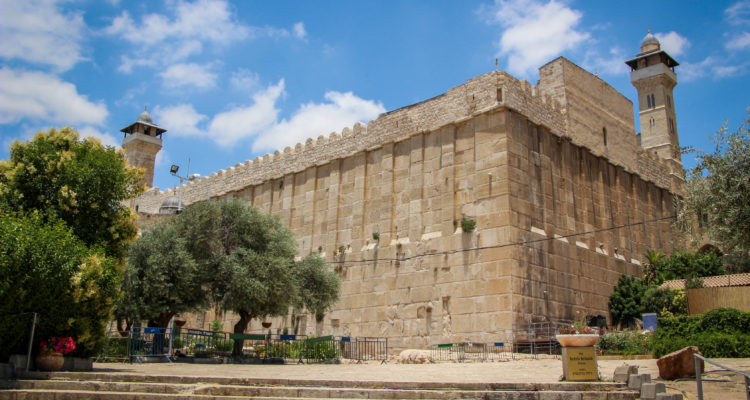Supreme Court justices questioned the State of Israel’s justification for creating an autonomous Jewish municipality in Hebron that is not under Palestinian jurisdiction
By: World Israel News Staff
Supreme Court justices issued a temporary injunction Monday night against the State of Israel’s decision to create an autonomous Jewish municipality in Hebron.
The court asked the State of Israel to justify the creation of an autonomous Jewish municipality in Hebron that is not under the Palestinians’ rule.
The temporary injunction, which froze the decision to create the Jewish municipality, seemed to be a sign that the justices were leaning toward annulling altogether the autonomous Jewish municipality.
The restraining order was issued within the framework of a petition presented by Hebron’s Palestinian municipality, which is opposed to the existence of an autonomous Jewish municipality.
Until recently, the Palestinian municipality was fully responsible for administering services, including in area H2, where Hebron’s Jewish community is located, but which includes a huge majority of Palestinians.
However, in August, 2017, the government established a separate Jewish municipality, which was empowered to govern the Jewish residents in Hebron, including corporations and businesses.
‘No reason for the court to meddle’
Yishai Fleisher, international spokesman for the Jewish community in Hebron, told WIN that the Supreme Court injunction is another example of excessive judicial activism.
“There is nothing constitutionally illegal with the government decision,” Fleisher said. “There is no reason for the court to meddle.”
Fleisher said that the Jewish community of Hebron would continue to fight for its right to autonomy, noting the absurdity of viewing Jews in Hebron as a foreign entity since Jews’ presence in the city dates back over three millennia.
The Palestinians who petitioned the court claim that the decision to create the Jewish municipality is unlawful.
They also argue that the ambiguous nature of the government decision from August is liable to lead to a situation in which the Jewish municipality will take authority over Palestinians.
The State of Israel argues that the creation of the Jewish municipality is legal and that the municipality will have no authority over the Palestinians.
Palestinian mayor of Hebron is convicted murderer
Fleisher rejected the idea that the Jews of Hebron would be treated fairly by Hebron’s Palestinian municipality considering that the mayor of Hebron, Tayseer Abu Sneineh, is a convicted murderer of six Israelis.
A Fatah party activist, Abu Sneineh was one of four Palestinians behind the murder of six Israeli yeshiva students in 1980.
The students, including two American citizens and a Canadian national, were part of a group that had danced from the Cave of the Patriarchs to Beit Hadassah in Hebron when Abu Sneineh and his terror cell opened fire. The six students were killed and 16 others were wounded.
Here is a video of Abu Sneineh bragging about the murders:
All the terrorists who participated in the attack were given life sentences, but released during the prisoner swaps of the 1980s.
Well before the decision in August, the Jewish community in Hebron administered much of its affairs independently.
However, it possessed no officially recognized municipal body empowered by law to levy taxes on residents, purchase property, or issue tenders and enter into contracts as an official town municipality.





